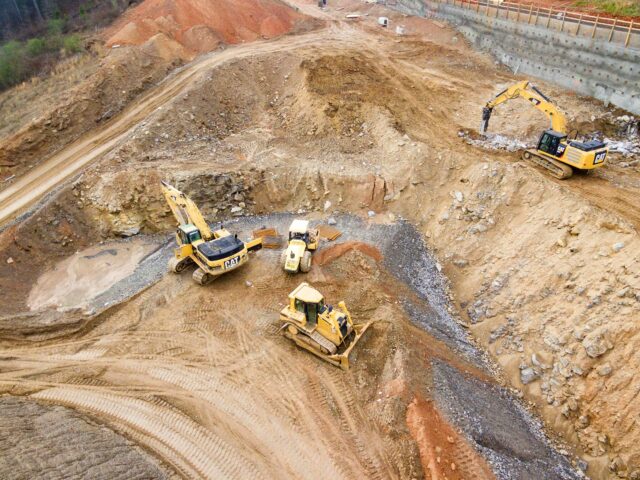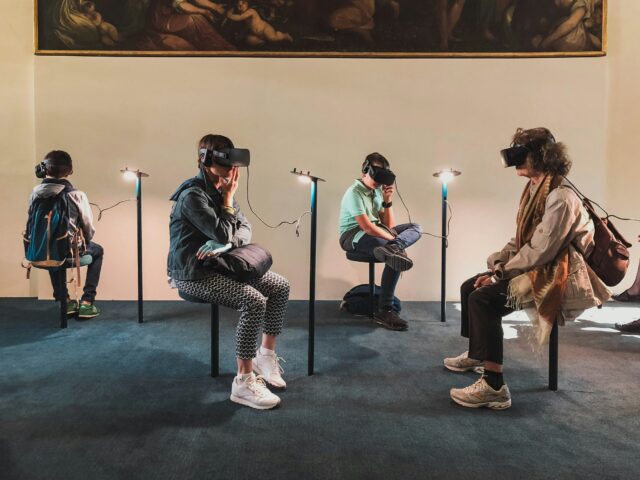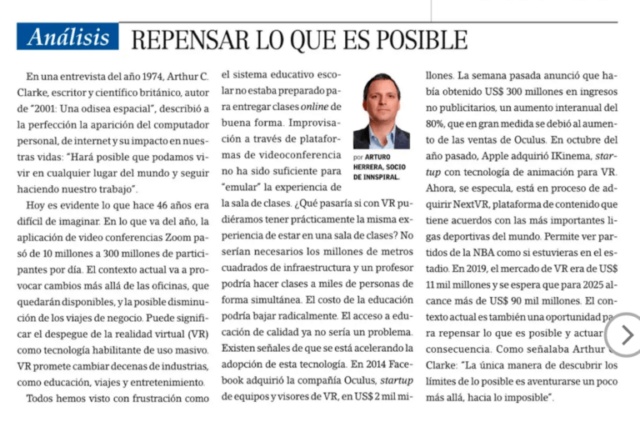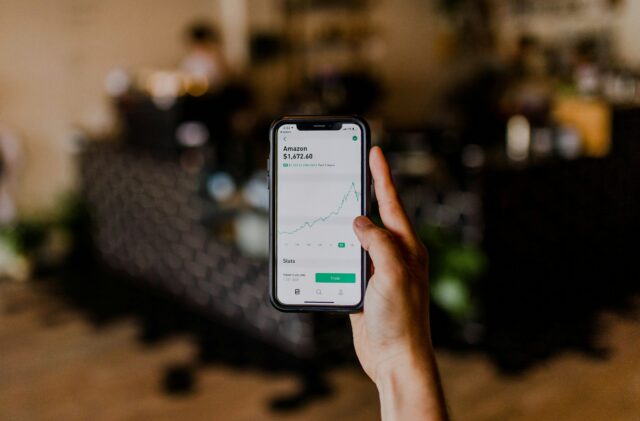By Arturo Herrera, partner
In a 1974 interview, Arthur C. Clarke, the British writer and scientist, author of “2001: A Space Odyssey,” perfectly described the emergence of the personal computer and the internet and their impact on our lives: “It will make it possible for us to live anywhere in the world and still do our work.”
Today, what was difficult to imagine 46 years ago is evident. So far this year, the video conferencing application Zoom has gone from 10 to 300 million participants per day. The current context will bring about changes beyond the available office space and the potential decrease in business travel.
It could signify the takeoff of virtual reality (VR) as an enabling technology for mass use. VR promises to change dozens of industries, such as education, travel, and entertainment.
We have all seen with frustration how the school education system was not prepared to deliver online classes effectively. Improvisation through video conferencing platforms has not been enough to “emulate” the classroom experience.
What if with VR, we could have virtually the same experience as being in a classroom? Millions of square meters of infrastructure would not be necessary, and a teacher could teach thousands of people simultaneously. The cost of education could drop drastically. Access to quality education would no longer be a problem.
There are signs that the adoption of this technology is accelerating. In 2014, Facebook acquired Oculus, a VR equipment and headset startup, for $2 billion. Last week, it announced that it had earned $300 million in non-advertising revenue, an 80% year-on-year increase, largely due to increased sales of Oculus.
In October last year, Apple acquired IKinema, a startup with animation technology for VR. Now, it is speculated that Apple is in the process of acquiring NextVR, a content platform with agreements with the most important sports leagues in the world. It allows you to watch NBA games as if you were in the stadium.
In 2019, the VR market was worth $11 billion, and it is expected to reach over $90 billion by 2025. The current context is also an opportunity to rethink what is possible and act accordingly. As Arthur C. Clarke pointed out: “The only way to discover the limits of the possible is to venture a little way past them into the impossible.”




